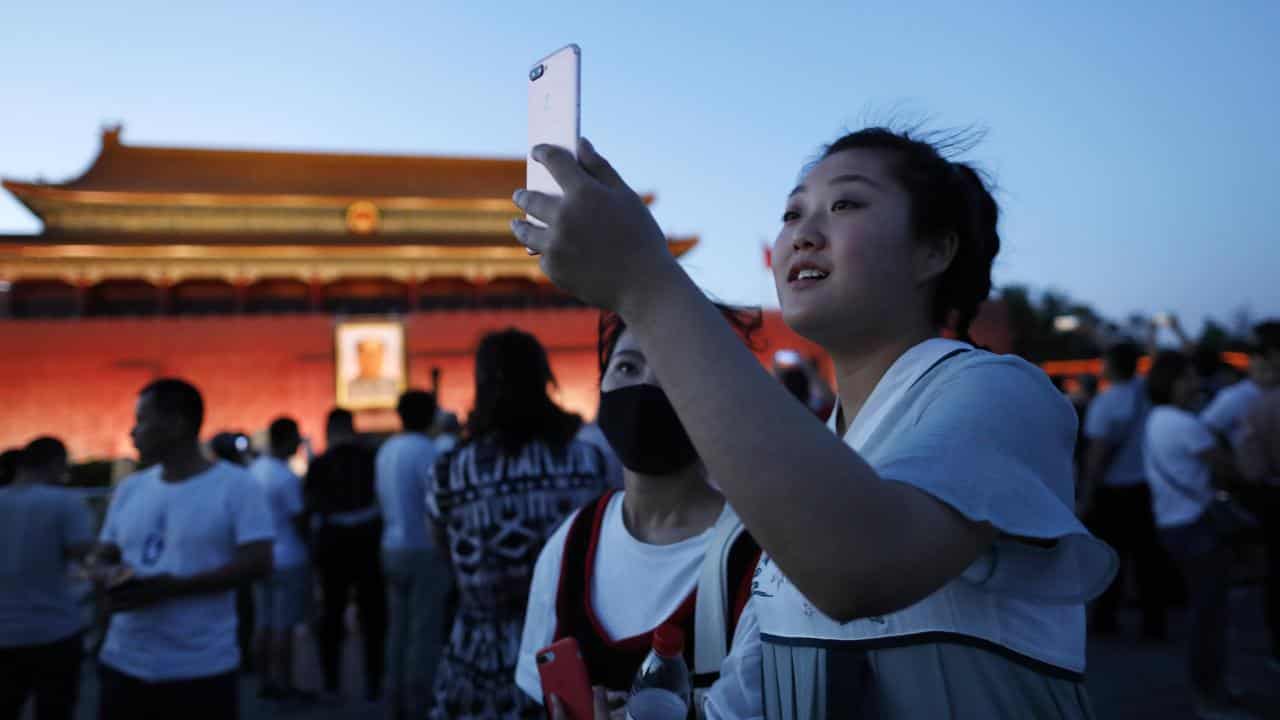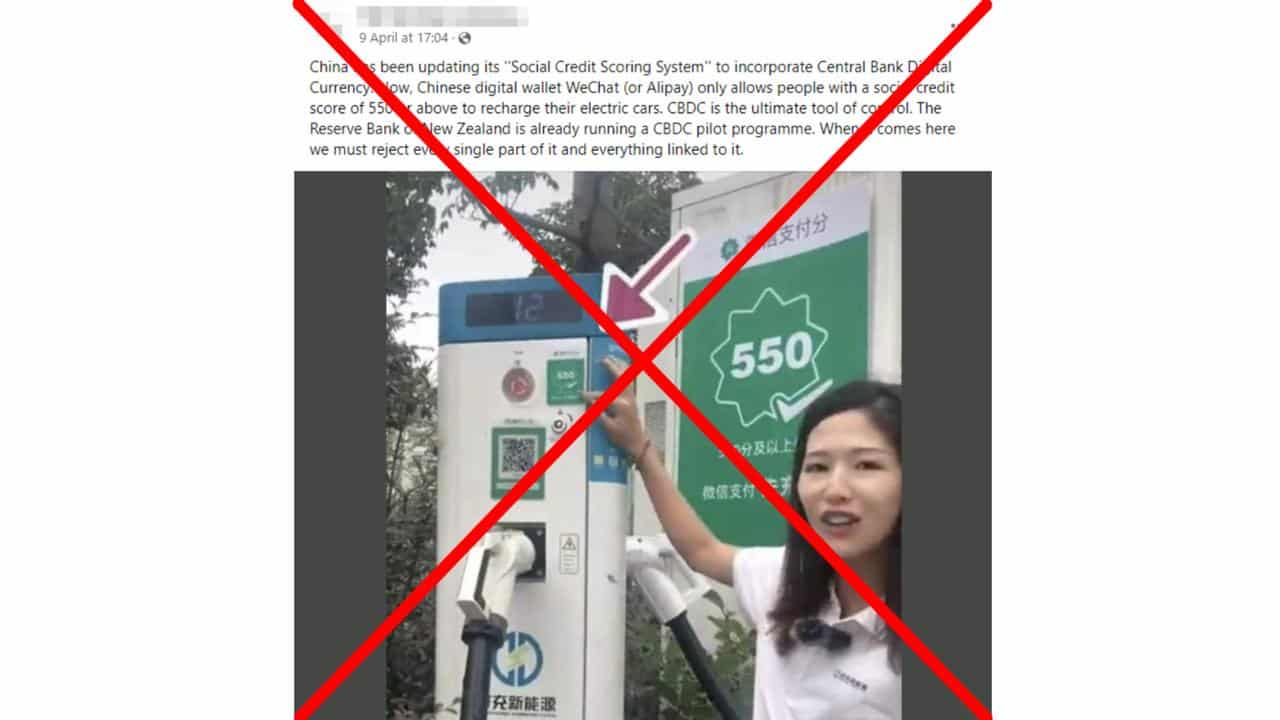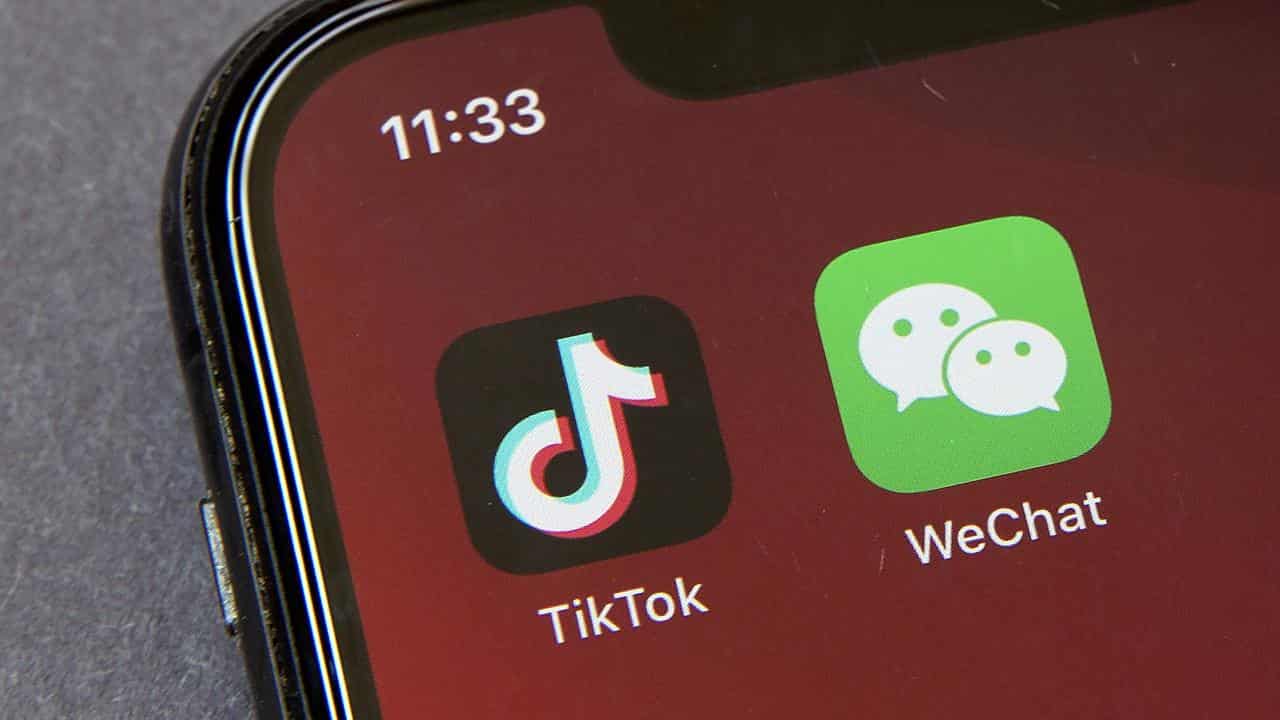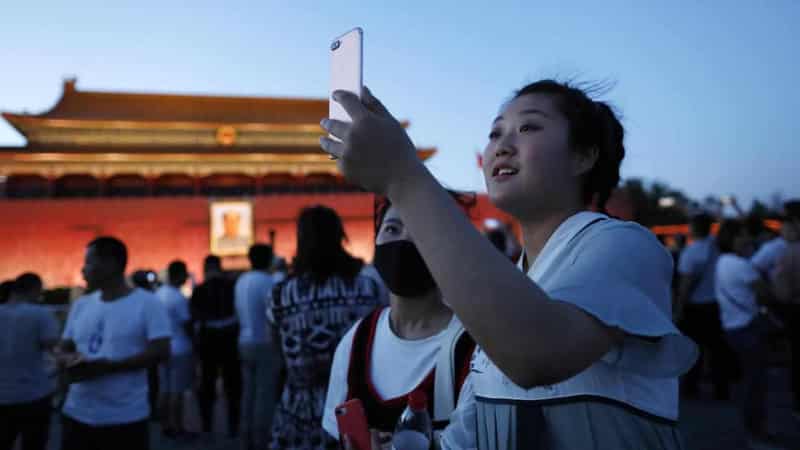
What was claimed
A video explains that Chinese people cannot charge their electric vehicles if their social credit score is under 550.
Our verdict
False. The video features an explanation of a ‘pay later’ reward system. China does not have a social credit score system for citizens.
A viral image is being used to suggest an Orwellian social credit scoring system from China is heading for New Zealand.
The screenshot from a video supposedly features a woman explaining that drivers are unable to charge their vehicles using Central Bank Digital Currency (CBDC) if their social credit score isn’t high enough.
Social media posts claim a similar system is heading to NZ.
However, the claim is wrong on several levels. The image has nothing to do with CBDC and experts told AAP FactCheck that China does not have a social credit scoring system for citizens. There are no plans for any related systems in NZ.

The claim is made in a viral post on Facebook which features an image of a woman pointing to a sign which reads “550” at an electric vehicle (EV) recharging station.
The caption claims China has been updating its “Social Credit Scoring System'' to incorporate "Central Bank Digital Currency".
"Now, Chinese digital wallet WeChat (or Alipay) only allows people with a social credit score of 550 or above to recharge their electric cars," it says.
“CBDC is the ultimate tool of control. The Reserve Bank of New Zealand is already running a CBDC pilot programme. When it comes here we must reject every single part of it ..."
The post makes several errors, including fusing three discrete systems: CBDC; a social credit system and the WeChat messaging app.
The app is owned by tech conglomerate Tencent and allows Chinese people to text, call, video, play games and even pay bills.
AliPay, which is mentioned in the post, is WeChat’s main competitor.
China's digital currency, known as the e-CNY, is different from WeChat and Alipay and is seen as a risk-free alternative, as well as being a replacement for physical cash - as this MIT (Massachusetts Institute of Technology) Technology Review explains.
China has also been developing a social credit system, which is separate again from the payment apps and digital currency.
This MIT article explains the system was announced in 2014 to be ready by 2020, but regulations on how it will work are still unfolding.
MIT notes that "contrary to popular belief, there’s no central social credit score for individuals. And frankly, the Chinese central government has never talked about wanting one".
The image in the Facebook posts only concerns WeChat, not the CBDC or a social credit system.

The number 550 represents a WeChat Pay score, which is like a reward system allowing a "pay later" option.
Hong Kong University's Annie Lab also debunked the claim and traced the image to the original video for a company running EV recharging stations in Guangdong.
Martin Chorzempa, from the Peterson Institute for International Economics, told AAP FactCheck the claims were ridiculous.
"This idea is silly," he said, adding that WeChat and Alipay have "private quasi-credit rating systems" based on their own data.
"This video shows that if you have a good (WeChat) score, you can charge first and pay later because they trust you will pay up. If you don’t have a good score, you need to pay first".
He added: "This video has zero, zilch to do with CBDC, as people are using private wallet WeChat Pay to make this transaction, not the central bank’s CBDC. And there is still no 'social credit score' nationwide in China."
Jeremy Daum, from Yale Law School's Paul Tsai China Center, also said the claim was wrong.
"As with most rewards systems, that app's score increases with use and is designed to incentivise using it," he told AAP FactCheck.
He also said China does not have a citizen scoring system.
"It has a system called 'social credit' that is largely aimed at businesses, but is less about ranking than making public any violations of law that a company has," Mr Daum said.
"Most Chinese citizens will have never heard of the term 'social credit'."
The Reserve Bank of NZ states on its website a "digital cash" proposal is undergoing consultation, with the aim of introducing it "around 2030".
"New Zealand does not have a social credit system and we are unaware of any discussions around introducing one," a bank representative told AAP FactCheck .
The Verdict
The claim that a video explains that Chinese people cannot charge their electric vehicles if their social credit score is under 550 is false.
The video features an explanation of a ‘pay later’ reward system for the WeChat app. Experts told AAP FactCheck it has nothing to do with CBDC and that China does not have a social credit scoring system for citizens.
False — The claim is inaccurate.
AAP FactCheck is an accredited member of the International Fact-Checking Network. To keep up with our latest fact checks, follow us on Facebook, Twitter and Instagram.









